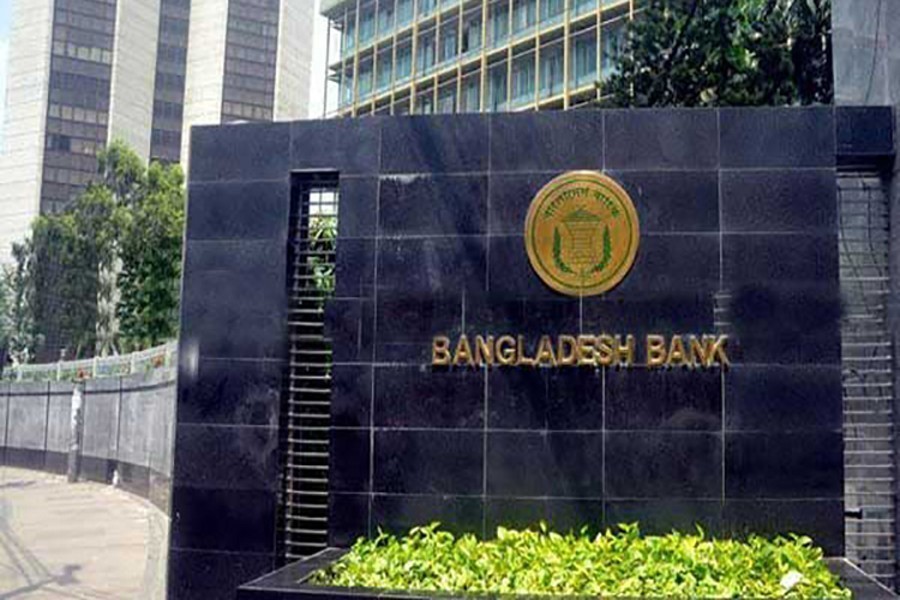Into the fourth week of his new job as the central bank governor, Mr Abdur Rauf Talukder initiated an action that many of his predecessors, deliberately or otherwise, had skipped. He, as his latest move suggests, wants to ensure good governance in the banking sector. At a press briefing held at the central bank on Thursday last, he sent a tough message to banks that are prone to breaking discipline and bending rules and regulations. He informed the newsmen that the central bank had identified 10 'relatively weak' banks, taking into account four indicators--- classified loans, capital adequacy, loan-deposit ratio and provisioning requirement. The Bangladesh Bank (BB) governor avoided labelling the banks concerned 'sick', though they have all the symptoms.
All the banks in question are in the private sector. The central bank reportedly has held meetings with a first-generation private bank and clarified that the board of the bank would provide only policy decisions and the job of the management would be to carry those out. The BB asked the management to bring to the BB's notice if the board tried to put pressure on it (management) unethically. The central bank, according to Mr Talukder, will also prepare three-year business plans for each of the weak banks after holding discussions with their management.
It is a good start, no doubt by the new governor. But, given the experience, it would be premature to pin much hope on the initiative. Experts of all hues and men in power and beyond have always felt the need to reform the banking sector. But, none has started well-directed reforms so far. This is because reforms are painful and the vested interests oppose those tooth and nail. The formation of the Banking Commission is a case in point. Repeatedly, experts have suggested forming a commission to streamline the affairs in the banking sector. But the proposed commission has not seen the light of the day, as there has been a subtle opposition to such a body from the people who matter.
Banking sector reforms date back to the early 1980s when the government denationalised Uttara Bank and Pubali Bank and allowed a few private banks to operate for the first time. In the mid-1980s, the government also constituted Money, Banking and Credit Commission to define scope and modalities of the early phase of financial sector reforms.
In the early 1990s, the World Bank entered the scene. Financial reforms began under a programme styled, Financial Sector Adjustment Credit (FSAC), designed by the WB. With expiry of the FSAC, there came yet another WB-sponsored reform programme named Financial Sector Reforms Programme (FSRP). Both the programmes were primarily designed to address structural issues and ease the built-in rigidness and flaws in the state-controlled banking and monetary operations. The reforms delivered partial results, as the government and other stakeholders were not very much interested in allowing the market forces to play their roles freely. Later, two expert committees on banking were formed to streamline the banking sector affairs, but most of their recommendations went unheeded.
So, unwillingness to clean the Augean stable through the much-needed reforms has given rise to a plethora of problems for the banking sector. It is hard to say the government is strongly behind reforms. A section of owners of private banks, for reasons best known to them, has developed a strong dislike for the word reform. Many top bankers favour reforms, but stay away from those to save their jobs.
But, the failure to effect reforms has been taking a heavy toll on the banking sector. Emergence of 'weak' banks, loan scams and build-up of huge classified loans are among many symptoms of a fragile banking system.
No denying that there is an overcapacity in the banking sector, meaning the number of banks is more than what the economy needs. Various pressure groups, including the political ones, have managed licences for banks, leading to the creation of an unhealthy environment. Some of the state-owned banks are now in dire straits because of mismanagement and undue interference by the government. The same is true of some private banks that are now being identified as 'weak' institutions. Necessary scrutiny, however, would reveal an unsavoury truth. There could be a few more banks that deserve an identical tag. The central bank's decision to enforce a moratorium on the classification of loans because of Covid-19 pandemic has made it more difficult to get a clear picture of classified loans of various banks. Honestly speaking, the central bank itself has been partially responsible for the prevailing situation in the banking sector. A business plan or appointment of advisers or administrators is unlikely to help in the matters of revamping weak banks. Most of them are strong candidates for mergers with relatively strong banks. The BB needs to actively think about such a possibility. More importantly, the banking sector must be subjected to deep-rooted reforms that would ensure discipline, accountability and good governance.


